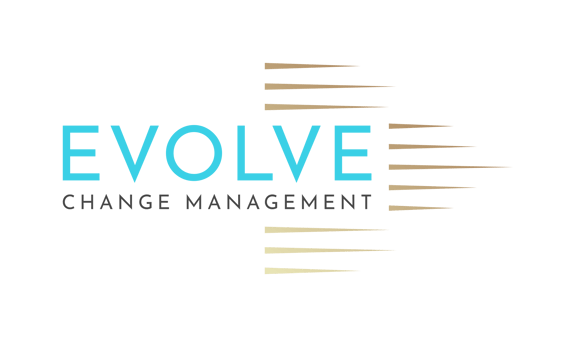
Agile change management
There for you when urgent change is your priority.
Learn how agile change management empowers your organisation to respond and adapt during crises, ensuring stability and resilience in uncertain times.

Who this service is for
Agile change management is suited to organisations seeking to effectively manage and navigate unforeseen, sensitive and urgent changes. It ensures that the change efforts are well-led, fostering a culture of adaptability and resilience.
Equip your organisation to respond to urgent challenges with agility and resilience, reducing the risk of delays, misalignment, or ineffective decision-making that could compromise outcomes. Common risks include:
Inadequate response to unforeseen challenges: Without ready, dedicated assistance, organisations may struggle to quickly adapt and respond while maintaining business continuity, increasing the likelihood of downstream consequences.
Resistance to rapid change: Without fostering a proactive and sensitive approach to sudden change, there is a higher risk of resistance from stakeholders, which can hinder fast-paced adjustment.
Delayed decision-making: In the absence of agile frameworks, decision-making processes may be slower, increasing the risk of delays that can derail effectiveness in critical moments.
Inflexibility in crisis situations: Lack of objective perspective on rigid road-blocks and general inflexibility can hinder an organisation's ability to pivot quickly to evolving crisis conditions, increasing the risk of ineffective responses.
Misalignment of objectives: Without reliable, continuous feedback and alignment, there is a risk of misaligned goals, which can lead to efforts being unfocused and not addressing the organisation’s most pressing needs.
Overwhelming complexity: Complex challenges that are not broken down into manageable change tasks can lead to overwhelm and mistakes, risking stalled progress and ineffectiveness in chaotic environments.
Study found using agile change management during crises improved decision-making speed by 25% & reduced failure rates by 22%, enabling more resilient operations.
(Source: Journal of Business Research, "The Impact of Agile Change Management on Organizational Resilience During Crises," 2020).

How we drive results
This service is specifically designed for agile situations, providing personalised support to help organisations navigate urgent and dynamic challenges. From initial concept to final evaluation, it offers a flexible approach that adapts to rapidly changing needs and ensures effective outcomes in fast-paced environments.
1. Setting the Foundation: Strategic Assessment and Planning
Every successful change initiative starts with a clear understanding of its impact. We assess how unforeseen events affect your operations, people, and processes, and develop an adaptive strategy that evolves with your organisation’s needs, ensuring focus and readiness for action.
2. Engaging Stakeholders: Alignment Through Communication
True change is built on trust. We identify and prioritise key stakeholders, ensuring their concerns are addressed and their voices are heard. With real-time updates and clear, transparent communication, we foster alignment and maintain confidence throughout the process.
3. Driving Momentum: Agile Change Implementation
Effective implementation transforms ideas into action. Through immersive workshops, we empower your teams to embrace change with confidence and clarity. By focusing on quick wins, we build momentum and demonstrate the value of change early on, inspiring trust and commitment.
4. Sustaining Progress: Monitoring and Feedback
Sustained success relies on staying adaptable. We continuously monitor the impact of changes, identifying opportunities for improvement and resolving issues early. Through dedicated feedback mechanisms, we ensure every adjustment supports your organisation’s goals.
Agile change management services covers high-leverage elements such as:
5. Adapting to Evolve: Real-Time Adjustments
Change isn’t static—it evolves. We use a dynamic, iterative approach to refine strategies and solutions in real-time, ensuring that your organisation remains flexible, responsive, and positioned for success as new challenges and opportunities arise.
6. Building Capability: Training and Knowledge Transfer
Empowerment is at the heart of resilience. Our tailored training programs equip your employees with the skills and confidence to adapt to new ways of working, while our knowledge-sharing sessions foster collaboration and embed organisational learning for long-term growth.
7. Celebrating Success: Post-Change Evaluation and Learning
Reflection transforms outcomes into lasting value. We conduct thorough evaluations to identify what worked and why, distilling key insights into actionable recommendations. By documenting lessons learned, we help you build a culture of continuous improvement and readiness for future challenges.
Research from the MIT Sloan Management Review found that companies utilising agile practices during crises reported a 30% increase in their ability to meet customer demands and a 25% improvement in employee morale.
(Source: MIT Sloan Management Review, "Agility in Crisis: How Organizations Thrive," 2021).

The value to you


Rapid adaptation
Enable quick responses to evolving circumstances, ensuring you stay ahead of challenges and seize opportunities.
Enhanced flexibility & efficiency
Support iterative adjustments, refining strategies and solutions in real-time as new information and feedback emerge.
Improved stakeholder engagement
Stakeholders involved and aligned with regular communication and feedback loops inherent in agile processes.




Better risk management
Better monitoring and quick pivots, reducing the risk of failure and enabling proactive responses to potential issues.


Higher success rates
Greater success rates for changes, as the agile approach emphasises delivering value early and often.


Customer-centric outcomes
Enhance value to end-users and customers, ensuring that changes are relevant and beneficial to those they impact.




Time saved
Minimise wasted time by preventing errors, rework, and uncertainty during transitions


Client retention
Avoid loss of future business and existing clients due to negative perceptions and experiences.


Workforce retention
Prevent talent loss by reducing resistance and cultivating a positive work environment
